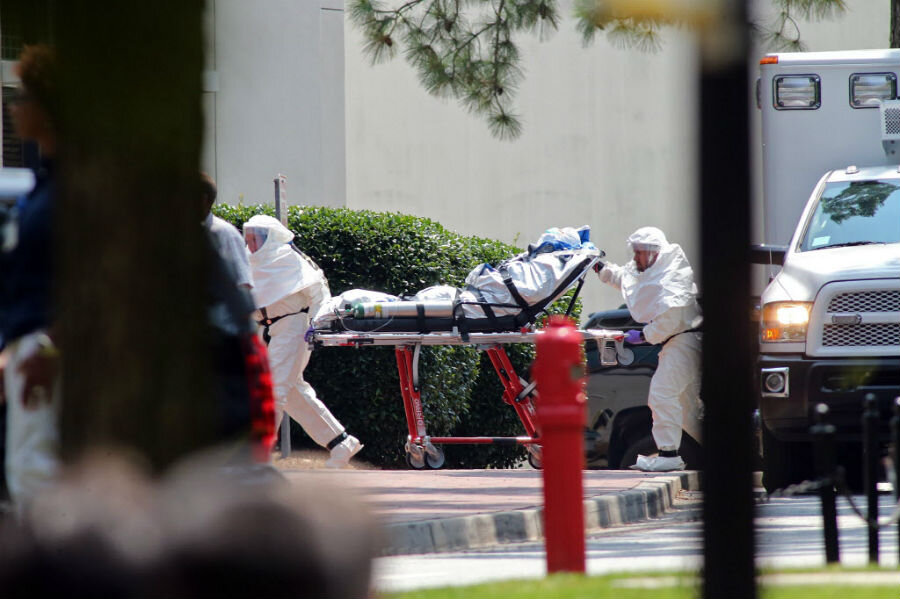Ebola outbreak: Should Africans receive an experimental US drug?
Loading...
News that two Americans being treated for Ebola in Atlanta are showing signs of improvement after receiving an experimental drug treatment, while at least 900 people diagnosed with the disease in West Africa have died, has raised ethical questions about who should get the drug.
American aid worker Nancy Writebol and US physician Kent Brantly are being treated in a special isolation unit at Emory University Hospital in Atlanta. Both patients are said to be improving after receiving the experimental drug ZMapp. While doctors are hesitant to attribute their progress to the drug, health officials in Africa are eager to get their hands on an even potential treatment.
“If Americans had this serum all the time, why didn’t they send it to us Africans to help save lives?” Sierra Leone journalist Winston Ojukutu-Macauley asked, according to the Associated Press.
The Ebola outbreak began in March in the West African country of Guinea and quickly spread to neighboring Liberia and Sierra Leone. So far, at least 1,700 people have been infected, authorities say.
There is, however, a flip side to Mr. Ojukutu-Macauley's question: Is it ethical for the United States – a nation that has struggled to overcome a history of murky ethics around testing drugs on African-Americans – to send an experimental drug to Africa that it hasn’t tested on its own citizens?
Traditionally, drugs in the US undergo a rigorous approval process involving multiple efficacy and toxicity studies in animals before they are tested on humans, as mandated by the US Food and Drug Administration. The drug ZMapp has been tested on monkeys – with a 43 percent success rate, according to the manufacturer – but has never before been given to humans.
The Centers for Disease Control and Prevention’s decision to allow Ms. Writebol and Dr. Brantly to grant consent to experimental treatment before that process has been fully completed is extremely unusual. Even if they recover fully, two patients is hardly a statistically significant study group. Just because they don’t have a negative reaction to the drug doesn’t mean that others won’t, medical experts say.
“How many times have we found magic therapies that ended up ... doing more harm than good?” cautioned University of Minnesota professor Michael Osterholm, who advises the US government on infectious disease threats, according to the Associated Press.
ZMapp is produced by Mapp Biopharmaceutical Inc. of San Diego. ZMapp contains three antibodies believed to boost the immune system's ability to fend off the virus. Scientists originally culled the antibodies from field mice that demonstrated resistance to the disease, and now grow them in tobacco plants. According to the manufacturer, the process is “painfully slow,” and production of even “a modest amount” could take two to three months.
The World Health Organization will convene a meeting with global medical ethics leaders to discuss the responsible course for distributing the drug if and when it becomes available in larger quantities.
However, US officials have stressed that drugs are not the key to stemming the outbreak.
“I don’t think all the information is in on whether this drug is helpful,” President Obama told reporters during a press conference Wednesday following the US-Africa summit. “What we do know is that the Ebola virus, both currently and in the past, is controllable if you have a strong public health infrastructure in place.”
The president pointed to ineffective public health systems throughout West Africa as having largely contributed to the spread of the disease.
“We’re focusing on a public health approach right now because we know how to do that,” he said. “But I will continue to seek information about what we’re learning with respect to these drugs going forward.”
• This report includes material from the Associated Press.








